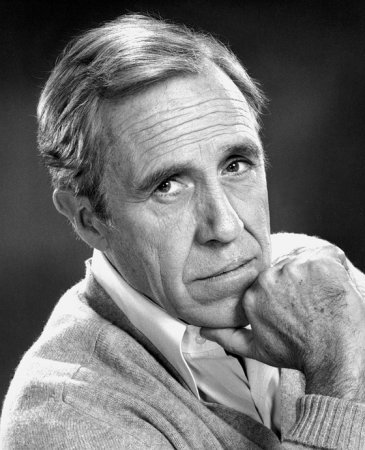Jason Robards (Jason Nelson Robards)

Robards was born in Chicago, the son of Hope Maxine (née Glanville) Robards and Jason Robards, Sr., an actor who regularly appeared on the stage and in such early films as The Gamblers (1929). Robards was of German, English, Welsh, Irish, and Swedish descent. The family moved to New York City, when Jason Jr. was still a toddler, and then moved to Los Angeles when he was six years old. Later interviews with Robards suggested that the trauma of his parents’ divorce, which occurred during his grade-school years, greatly affected his personality and worldview. As a youth, Robards also witnessed first-hand the decline of his father’s acting career. The elder Robards had enjoyed considerable success during the era of silent films, but he fell out of favor after the advent of “talkies” (sound film), leaving the younger Robards soured on the Hollywood film industry. The teenage Robards excelled in athletics, running a 4:18-mile during his junior year at Hollywood High School in Los Angeles. Although his prowess in sports attracted interest from several universities, Robards decided to join the United States Navy upon his graduation in 1940. Robards decided to get into acting after the war and his career started out slowly. He moved to New York City and found small parts – first in radio and then on the stage. His big break was landing the starring role in José Quintero’s 1956 off-Broadway-theatre revival production and the later 1960 television film of O’Neill’s The Iceman Cometh, portraying the philosophical salesman Hickey; he won an Obie Award for his stage performance. He later portrayed Hickey again in another 1985 Broadway revival also staged by Quintero. Robards also created the role of Jamie Tyrone in the original Broadway production of O’Neill’s Pulitzer Prize and Tony Award-winning Long Day’s Journey into Night, which was also directed by Quintero; Robards appeared in the lead role of James Tyrone, Sr. in a 1988 production of the same play. Other O’Neill plays directed by Quintero and featuring Robards included Hughie (1964), A Touch of the Poet (1977) and A Moon for the Misbegotten (1973). He repeated his role in Long Day’s Journey into Night in the 1962 film and televised his performances in A Moon for the Misbegotten (1975) and Hughie (1984). Robards also appeared onstage in a revival of O’Neill’s Ah, Wilderness! (1988) directed by Arvin Brown, as well as Lillian Hellman’s Toys in the Attic (1960), Arthur Miller’s After the Fall (1964), Clifford Odets’s The Country Girl (1972) and Harold Pinter’s No Man’s Land (1994).
He made his film debut in the two-reel comedy Follow That Music (1947), but after his Broadway success he was invited to make his feature debut in The Journey (1959). He became a familiar face to movie audiences throughout the 1960s, notably for his performances in A Thousand Clowns (1965) (repeating his stage performance), The Night They Raided Minsky’s (1968) and Once Upon a Time in the West (1968). He appeared on television anthology series, including two segments in the mid-1950s of CBS’s Appointment with Adventure. Robards played three different U.S. presidents in film. He played the role of Abraham Lincoln in the TV movie The Perfect Tribute (1991) and supplied the voice for two television documentaries, first for “The Presidency: A Splendid Misery” in 1964, and then again in the title role of the 1992 documentary miniseries Lincoln. He also played the role of Ulysses S. Grant in The Legend of the Lone Ranger (1981) and supplied the Union General’s voice in the PBS miniseries The Civil War (1990). He also played Franklin D. Roosevelt in FDR: The Final Years (1980). Robards appeared in two dramatizations based on the Watergate scandal. In 1976 he portrayed Washington Post executive editor Ben Bradlee in the film All the President’s Men, based on the book by Carl Bernstein and Bob Woodward. The next year, he played fictional president Richard Monckton (based on Richard Nixon) in the 1977 television miniseries Washington: Behind Closed Doors based on John Ehrlichman’s roman à clef The Company. In 1983, Robards starred in the television movie The Day After where he played Dr. Russell Oakes. The movie is one of the most viewed television programs of all time. Robards voiced a number of documentaries, including Ken Burns’s Empire of the Air: The Men Who Made Radio (1991). In Magnolia (1999), his final feature film role, the ailing Robards portrayed a dying man who reconnects with his estranged son, played by Tom Cruise. Robards was a resident of the Southport section of Fairfield, Connecticut. He died of lung cancer in Bridgeport, Connecticut, on December 26, 2000, at the age of 78. He was cremated.
Born
- July, 26, 1922
- USA
- Chicago, Illinois
Died
- December, 26, 2000
- USA
- Bridgeport, Connecticut
Cause of Death
- lung cancer
Other
- Cremated



